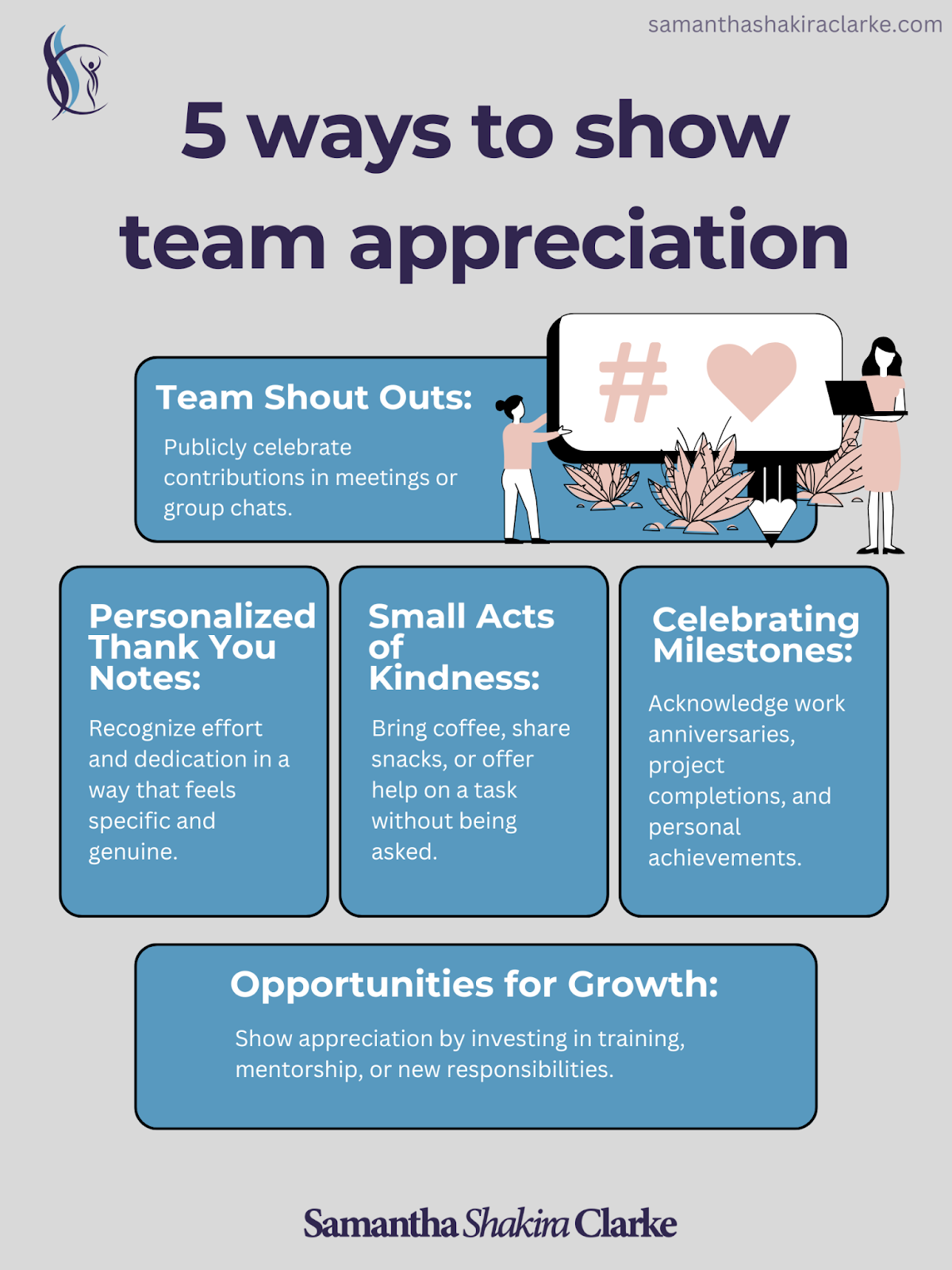 Book Now!
Book Now!In today’s fast-paced work environments, gratitude is a powerful tool for building trust, boosting morale, and deepening connection across teams that is often overlooked. When we take time to acknowledge one another with authenticity, we foster a culture of belonging. These moments of appreciation, both big and small, support the emotional fabric of a team and help people feel grounded and valued in their roles.
As a therapist, I’ve seen how real, mutual appreciation can shift group dynamics. It encourages people to take up space with more confidence and show up for each other in meaningful ways. At its best, gratitude is relational. It strengthens the conditions necessary for psychological safety, where teams can grow and thrive together.
Research shows that gratitude is a catalyst for deeper connection. Expressing and receiving gratitude increases oxytocin, the hormone linked to bonding and trust (Algoe, Haidt, & Gable, 2008). These neurochemical responses enhance interpersonal warmth and cooperation. Gratitude has also been shown to reduce feelings of isolation and loneliness, which are often barriers to collaboration and creativity (Emmons & McCullough, 2003).
In the workplace, this translates to stronger engagement and retention. According to a 2021 article from Harvard Business Review, regular, thoughtful expressions of thanks contribute to lower rates of burnout and higher overall team satisfaction (HBR, 2021). Gratitude supports a sense of shared purpose and reminds people that their work, and who they are, matters.
Gratitude between colleagues has a unique kind of power. When appreciation flows horizontally across a team, it reinforces the idea that everyone contributes to the culture… not just management. These informal gestures create cohesion and remind team members that their everyday actions are noticed and appreciated.
Whether it’s a kind note after a project, a verbal thank you during a meeting, or a simple message of encouragement, these moments help shape a community of care. They also make it easier for others to reciprocate, creating a ripple effect of positivity that strengthens team morale.
When leaders take the time to express gratitude, it signals that care and connection are part of the company’s values. Gratitude becomes a way of modelling emotional intelligence and relational leadership. This type of recognition doesn’t need to be elaborate. It can be as simple as starting meetings with a check-in, offering thoughtful feedback, or highlighting a team member’s contribution.
Gratitude from leadership supports psychological safety by showing that vulnerability is welcomed. When people feel seen and appreciated, they are more likely to speak up, collaborate, and engage creatively without fear of judgement.
For some leaders, expressing gratitude may feel uncomfortable at first. Many traditional workplace cultures rewarded hierarchy and results over relational connection, which left little room for open appreciation. Shifting toward a culture of gratitude can feel unfamiliar, and it is normal to fumble as new practices take shape. What matters most is consistency and sincerity. Over time, even small, imperfect efforts help dismantle outdated norms and create space for more authentic, human-centered leadership.
Here are a few practical and inclusive ways to weave gratitude into your team culture right away:

People want to feel appreciated. When gratitude is expressed authentically, it resonates. Employees who feel valued are more likely to pay that appreciation forward to colleagues, clients, and the broader team culture. In this way, gratitude becomes a sustainable and self-reinforcing practice that benefits everyone in the workplace.
Gratitude is a relational skill that helps people feel connected, cared for, and motivated to contribute. When workplaces make space for appreciation, not just achievement, they invite more humanity into the workday. This sense of connection supports healthier teams, greater innovation, and a culture where people genuinely want to stay and grow.
This blog post was written in collaboration with Samantha Shakira Clarke, who is a leader in creating powerful spaces for equity, mental health, and embodied transformation in the workplace. If your team is ready to engage more deeply with diversity, equity, and inclusion, consider working with SSC and our dynamic network of professionals.



